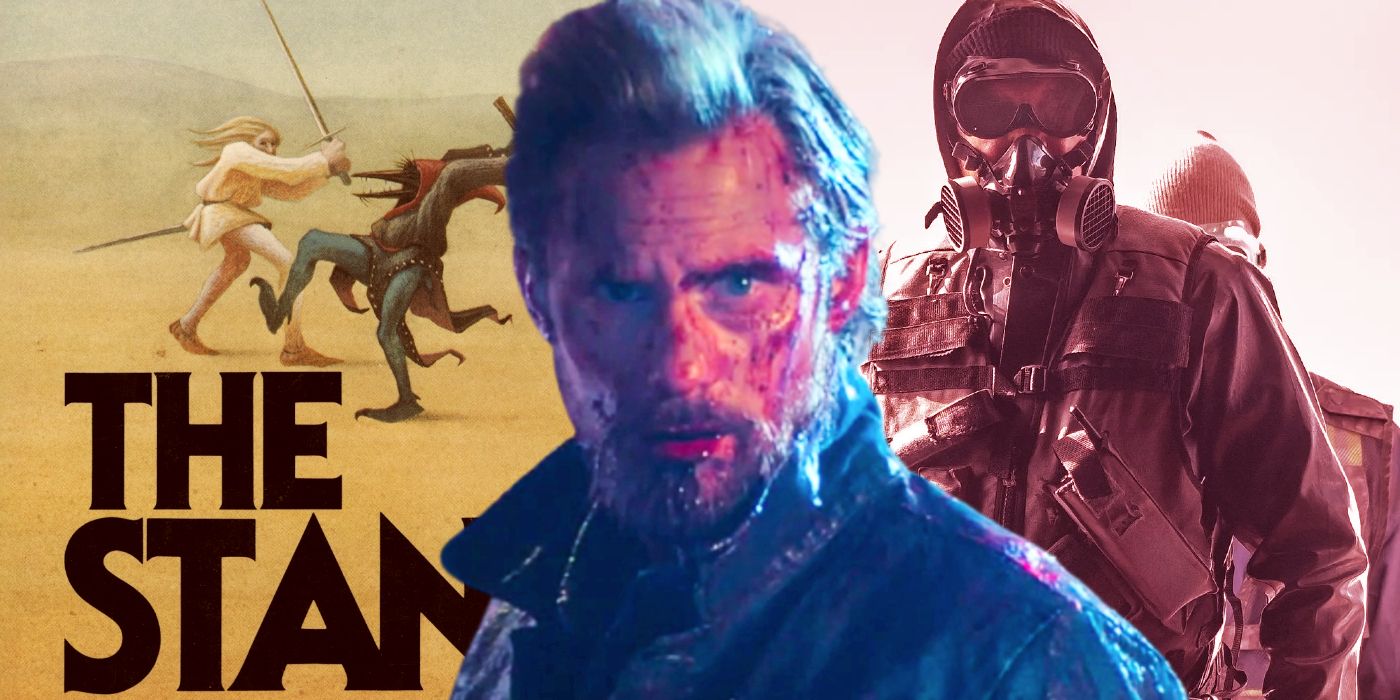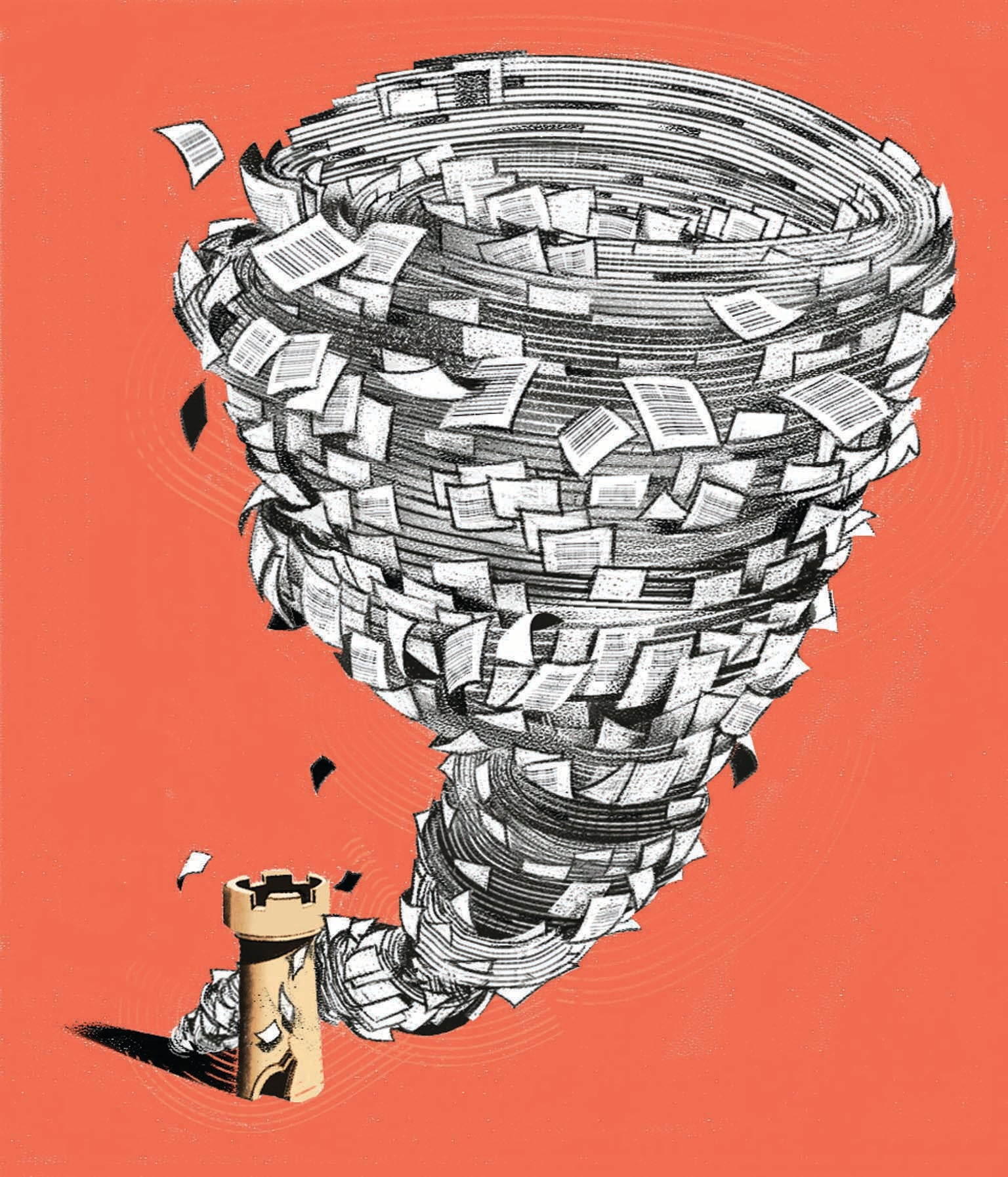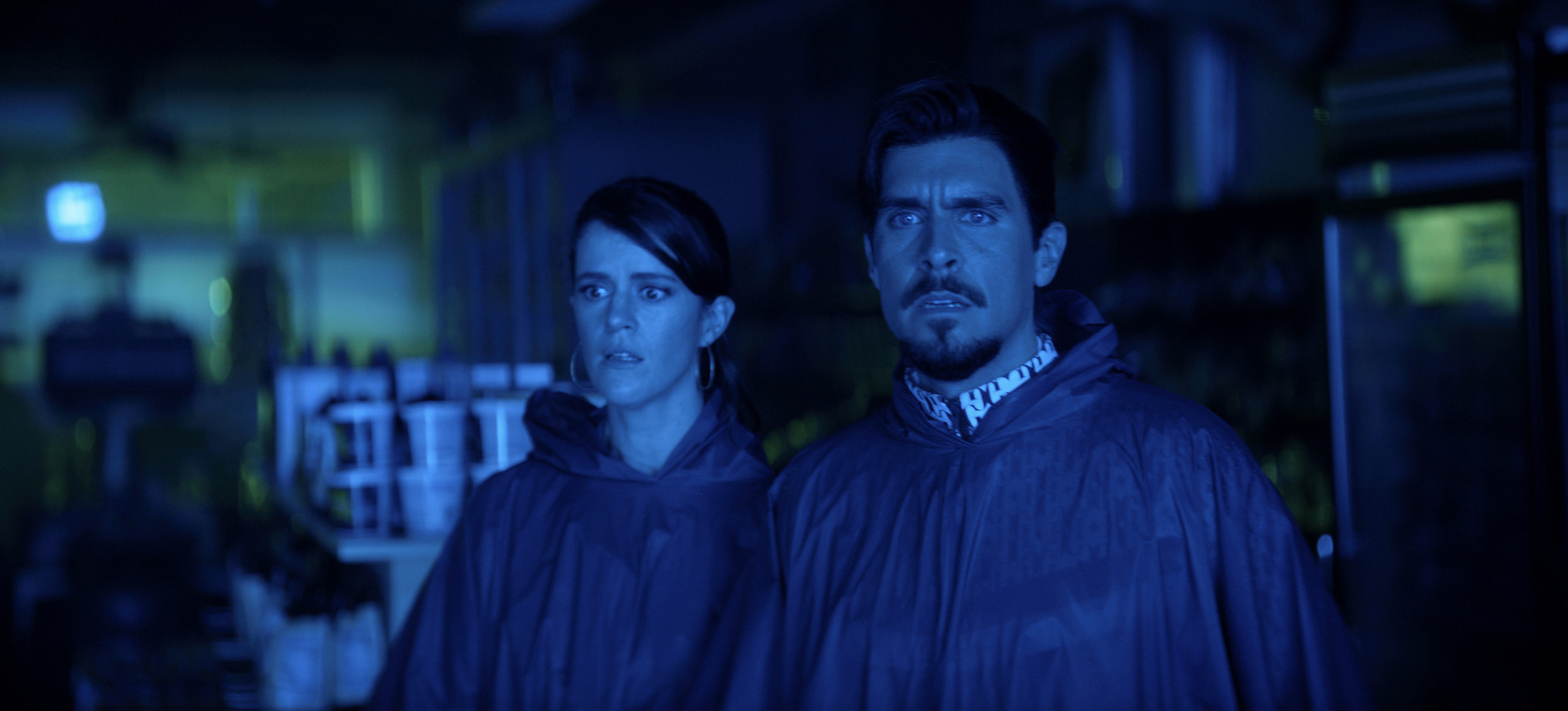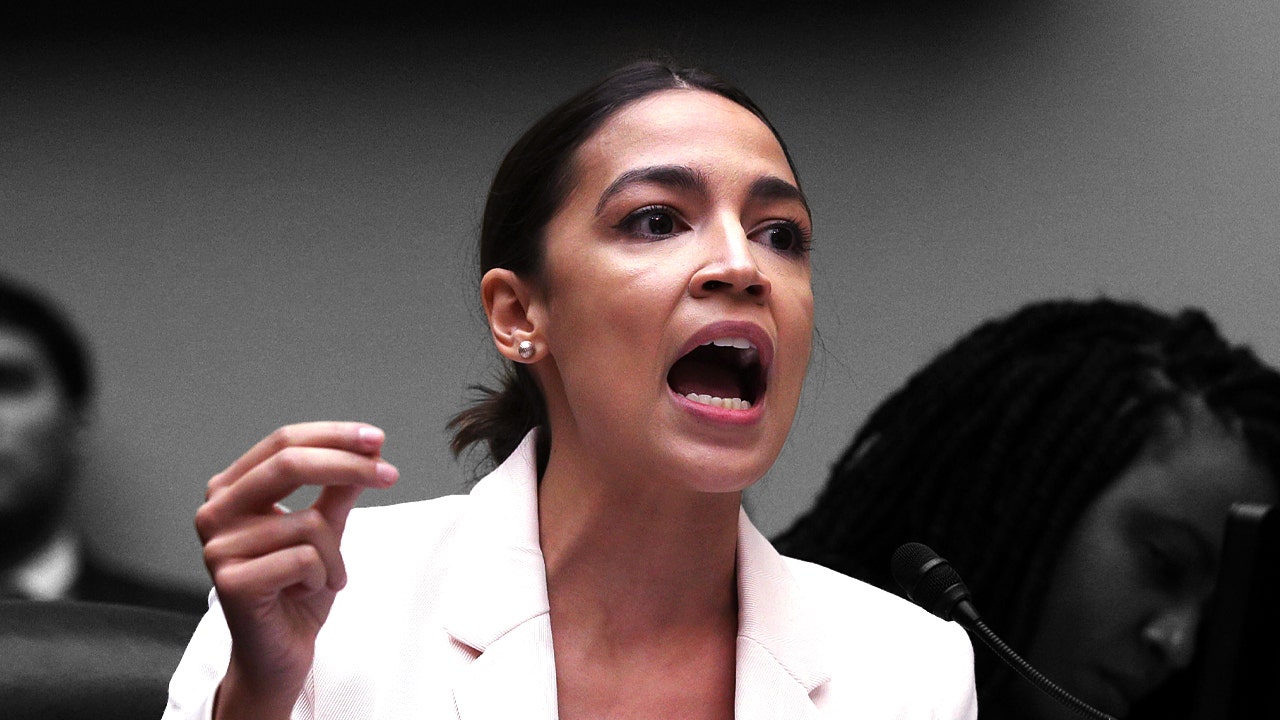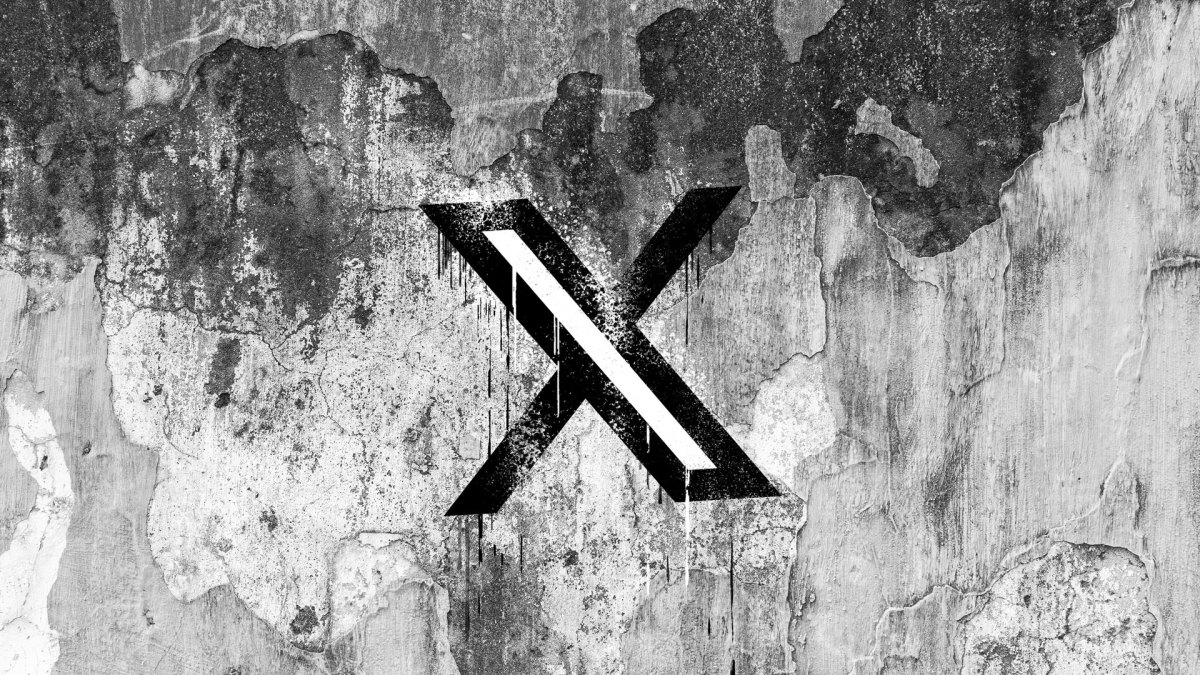Although The Stand’s 2020 remake flopped with critics and viewers alike, the miniseries had one saving grace—its only contribution from original novel author Stephen King. Stephen King has been a horror legend for decades, but his work’s history of screen adaptation has been a very mixed bag. For every huge hit like 2017’s blockbuster horror adaptation It, there is a middling release like Lisey’s Story or an outright flop.
Unfortunately, 2020’s The Stand ended up falling into the latter category. 2020’s The Stand had big shoes to fill, as the miniseries was a remake of Mick Garris’ popular 1994 adaptation and the book it was based on was one of King’s most beloved novels. The COVID-19 pandemic did the miniseries no favors but ultimately, 2020’s The Stand was doomed by divisive subplots, a confusing story structure, and an interminably slow pace more than unfortunate timing.
Understandably, a story about a killer pandemic wiping out much of America failed to enthuse viewers when The Stand fatefully premiered in December of 2020. However, it soon became clear based on reviews that bad timing was in fact the most minor issue faced by the miniseries. The Stand creator and showrunner Josh Boone’s strange decision to tell its already overstuffed plot in non-linear order was one major mistake, while the profound misunderstanding of numerous key figures in the text didn’t help the reception of the miniseries. The Stand ruined some of Stephen King’s best villains and left the heroes with little to do, which makes it surprising that the writer himself almost saved the series in a single episode. King penned the final episode of The Stand, a new epilogue that takes place after the action of the story proper, and it’s tense, terrifying, thoughtful, and hopeful—everything 2020’s The Stand failed to be until its finale.
What Went Wrong With The Stand 2020
An anachronistic narrative structure made The Stand’s fairly simple but sprawling story (two bands of survivors battle after the apocalypse) almost impossible for uninitiated viewers to follow. For those familiar with the novel, though, everyone from Alexander Skarsgård’s neutered Randall Flagg to Amber Heard’s miscast Nadine Cross underwent massive character changes, most of which made the heroes more one-note and the villains less scary. Outside of a few bright spots like Owen Teague’s engaging, genuinely unnerving take on Harold Lauder, The Stand failed because the miniseries remake made Randall Flagg’s villainy more conventional, the morality of the characters more clear-cut, and the individual arcs of characters like Frannie less engaging. As such, some viewers were understandably surprised when The Stand‘s final episode managed to show what might have been, focusing on one character, telling a straightforward story, and providing a satisfying conclusion in the process.
How Stephen King Almost Saved The Stand
Proving that he should adapt more of his own books, Stephen King penned the season finale, an original epilogue not based on his source novel. The episode, “The Circle Closes,” is the strongest of the season by far, fleshing out Frannie’s character, bringing back Randall Flagg and making him an effectively seductive villain for the first time, and even injecting some real stakes into proceedings. For a lot of the episode’s runtime, the risk of Frannie and her baby dying seems very real as Frannie lies in the bottom of a well and awaits rescue, resisting Flagg’s alluring offer to save her life in exchange for a favor. This constant tension makes “The Circle Closes” both a strong hour of genre storytelling and a necessary corrective after the flat, lifeless preceding season, but the episode is not without its fun moments too.
A POV shot from Flagg following Frannie and Stu to their new home in Maine references King’s earlier story Children of the Corn, and provides proof that Flagg is (as was often theorized) He Who Walks Among The Rows. Meanwhile, the fact that Frannie’s test comes in the form of a test of her faith rather than a literal test of physical strength shows that King’s idea of fortitude has matured in the decades since he authored the original novel. For a story so concerned with God, the Devil, and existential questions, even the acclaimed 1994 miniseries struggled with the fact that The Stand’s climax essentially consists of Las Vegas being nuked via divine intervention. It is an ending that co-signs the use of extreme violence while preaching peace, and the nuclear blast that destroys the city is a bombastic, corny close to an otherwise complex and thoughtful text.
How The Stand’s Finale Saved Frannie & Randall Flagg
2020’s The Stand miniseries ruined Flagg’s Las Vegas, and this major misstep made it refreshing that the ending of the series was not a triumphant nuclear explosion wiping out every antagonist at once. Instead, The Stand’s final image is of a woman in dire circumstances choosing to trust that her enduring faith will take care of her and her family, rather than succumbing to evil. It’s a far more thematically fitting and moving ending, and one that does justice to Frannie in a way that even the original novel failed to.
Could A Season 2 Fix The Stand
It’s unlikely that The Stand will receive a second season as, like director Josh Boone’s earlier, equally badly-reviewed effort New Mutants, its critical failure and delayed release outshined the saving graces of the miniseries. However, this is no bad thing. While King’s script for the final episode went a long way to fixing The Stand’s problems, this alone was not enough to warrant another season fleshing out unlikable characters and their convoluted stories. The image of Frannie and Stu surviving to face the new world with their baby was a compelling image to end on after the many disappointments of the miniseries, while the highly amusing sight of the nude villain attempting to woo new followers was the sort of campy villainy that Skargaard’s Randall Flagg deserved far more of. As such, The Stand’s ending proves the miniseries could have been better, but the finale does not show that a second season would improve its reception or fix its myriad issues.
Which Adaptations Of His Books Did Stephen King Hate?
Stephen King is a giant of the horror genre not only because of his skill in the craft but also because his work is some of the most prolific and thoroughly film-adapted of all time – however, he doesn’t like every adaptation. And for every flop like The Stand 2020, there are other King adaptations that have met with very positive critical and audience reception. King’s own opinions are a mixed bag, though. Clearly, the author felt enough sympathy towards The Stand to help it save some face in the final episode, but he’s been much less generous towards other adaptations, especially Stanely Kubrick’s The Shining. Although it’s a legendary horror movie in its own right, Stephen King hates The Shining for being an inauthentic representation of the story he originally penned. Over the years, The Tommyknockers, Graveyard Shift, Dreamcatchers, The Dark Tower, and Maximum Overdrive, which he himself directed, have also ranked among King’s least favorite Stephen King movies.
What Was Stephen King’s Favorite Adaptation Of His Books?
By contrast, Stephen King has also appreciated and even loved some film adaptations of his books. Most of these have also been critical successes and audience-beloved classics, such as Carrie, The Dead Zone, Cujo (for which King appreciated being earnestly consulted), and The Shawshank Redemption. But King’s favorite adaptation of his written work by far is Rob Reiner’s Stand By Me (1986). This story, which draws heavily on King’s own childhood, holds a special place in the author’s heart, and he has always loved how faithfully the film adapts the spirit in which it was written. While The Stand might have been a flop, Stephen King favorites like Stand By Me continue to be popular, must-watch adaptations.
About The Author















































